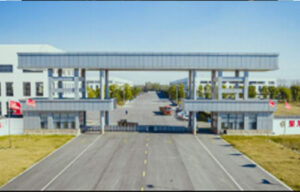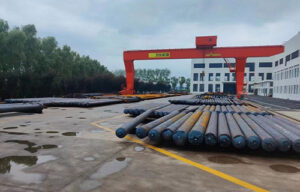Hot work tool steel is renowned for its exceptional performance in high-temperature applications, making it a vital material in various industrial processes. Among the alloying elements that contribute to the remarkable properties of hot work tool steel, tungsten plays a pivotal role. Tungsten is prized for its ability to enhance several key properties of hot work tool steel, including heat resistance, wear resistance, and overall durability. In this comprehensive article, we will delve into the multifaceted influence of tungsten on hot work tool steel, exploring its impact on composition, properties, and its significance in diverse industrial applications.

1. Introduction
Tungsten, known for its exceptional hardness and heat resistance, is a pivotal element in the world of hot work tool steel. Its unique properties enhance the performance and versatility of hot work tool steel, making it an indispensable material in industries requiring high-temperature applications.
2. Hot Work Tool Steel: Composition and Characteristics
Alloying Elements
Hot work tool steel is meticulously crafted with a precise blend of alloying elements, including tungsten, chromium, molybdenum, vanadium, and others. These elements provide heat resistance, wear resistance, toughness, and strength to the steel.
Heat Resistance and Wear Resistance
Hot work tool steel excels in heat resistance, maintaining structural integrity even at temperatures exceeding 600°C (1112°F). Its wear resistance ensures that molds, dies, and tooling remain durable in abrasive environments.
The Role of Tungsten
Tungsten contributes significantly to hot work tool steel’s heat resistance, wear resistance, and overall durability. Its presence in the alloy forms stable carbides that enhance various properties.
3. Understanding Tungsten
Tungsten’s Unique Properties
Tungsten is known for its exceptional hardness, high melting point, and resistance to deformation at elevated temperatures. These properties make it a valuable addition to hot work tool steel.
Tungsten Carbides
Tungsten forms stable carbides within hot work tool steel, which significantly contribute to the material’s hardness, wear resistance, and heat resistance. These carbides are dispersed throughout the steel matrix.
4. The Influence of Tungsten on Hot Work Tool Steel
Heat Resistance Enhancement
Tungsten’s presence in hot work tool steel significantly enhances its heat resistance, allowing the material to maintain structural integrity even at extreme temperatures. This is critical in high-temperature applications like die casting and forging.
Wear Resistance Augmentation
Tungsten-enriched hot work tool steel exhibits exceptional wear resistance, ensuring that molds, dies, and tooling maintain their precision and longevity, even in abrasive environments like extrusion and plastic molding.
Strengthening the Steel
Tungsten contributes to the overall strength of hot work tool steel, enabling it to withstand mechanical stresses and impact loads in demanding industrial processes.

5. Applications of Tungsten-Enriched Hot Work Tool Steel
Die Casting
In die casting, where molten metal is injected into molds at high temperatures and pressures, tungsten-enriched hot work tool steel ensures that the molds endure extreme conditions and maintain dimensional accuracy.
Forging
Hot work tool steel with tungsten is used for forging dies, where the combination of strength, toughness, and heat resistance is crucial to endure the mechanical stresses and impact loads during forging.
Extrusion
In extrusion forging, hot work tool steel enriched with tungsten is used for tooling components that shape materials under high temperatures and pressures. The material’s heat resistance and wear resistance are crucial for maintaining precision.
Plastic Molding
Tough hot work tool steel with tungsten is vital for plastic molding applications, where molds must endure both high temperatures and mechanical stress without failure.
6. Challenges and Considerations
Optimizing Tungsten Content
Optimizing the tungsten content in hot work tool steel is essential to strike the right balance between heat resistance, wear resistance, and strength. Alloy design requires careful engineering.
Alloy Design and Heat Treatment
Proper alloy design, combined with precise heat treatment processes, ensures that tungsten-enriched hot work tool steel maintains its properties and performance throughout its service life.
7. FAQs
Frequently Asked Questions About Tungsten’s Influence on Hot Work Tool Steel
Q1. Can hot work tool steel be formulated without tungsten?
Hot work tool steel can be formulated without tungsten, but its absence would result in a loss of the enhanced heat resistance, wear resistance, and overall durability that tungsten imparts.
Q2. Are there specific hot work tool steel grades enriched with tungsten for different industries?
Yes, specific hot work tool steel grades with varying tungsten content are tailored to different industrial applications and operating conditions. Consulting with material experts and considering the working environment is crucial when selecting the appropriate grade.
Q3. How does the addition of tungsten impact the machinability of hot work tool steel?
The addition of tungsten can impact the machinability of hot work tool steel. Higher tungsten content may make the material more challenging to machine, necessitating specialized tooling and techniques.

